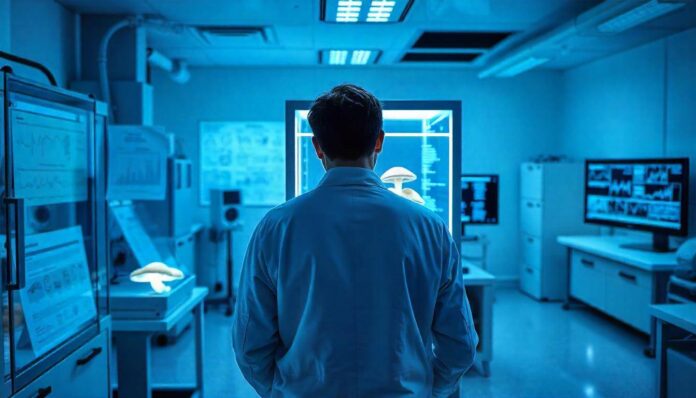The exploration of psilocybin, a psychedelic compound found in certain mushrooms, continues to captivate the scientific community. Recent studies delve into its intriguing capacity not just to alleviate depressive symptoms but also to impact sleep disturbances. This dual effect could unlock new pathways for mental health treatment.
Understanding psilocybin’s effect on sleep and depression
Recent research highlights that while psilocybin significantly reduces depressive symptoms, its influence on sleep is more nuanced. Initial findings indicate that both depression and sleep issues lessen post-psilocybin use, albeit with varying degrees of improvement. Particularly among individuals with severe sleep disturbances at the start of the study, notable enhancements in sleep were observed.
The intricate relationship between sleep and depression underlines the importance of addressing both when considering therapeutic approaches. Interestingly, those who began with major sleep problems faced greater challenges in overcoming depression. This suggests that sleep quality may play a critical role in one’s response to psilocybin mushroom therapy.
Sleep disturbances as an indicator
A striking insight from the studies is that residual sleep issues after psilocybin interventions can predict future depressive symptoms. This observation points towards a potentially pivotal role of sleep in the overall effectiveness of psilocybin’s antidepressant action. On the flip side, improvements in depression do not seem to predict changes in sleep patterns.
Researchers propose several theories for this phenomenon. One speculation is that better sleep could directly contribute to the therapeutic effects of psilocybin on depression. Another possibility is that poor sleep might hinder the physiological processes underlying psilocybin’s benefits. Alternatively, persistent sleep disturbances might be indicative of a predisposed resistance to such treatments.
Research collaboration and methodology
The recent study drew attention by involving esteemed institutions like the Johns Hopkins School of Medicine, the University of California San Francisco, Imperial College London, and the University of Amsterdam. This collaborative effort brought together diverse expertise to investigate psilocybin’s impacts comprehensively.
Participants, numbering 886 adults planning to use psychedelics, filled out detailed questionnaires on their depressive symptoms, which included facets like insomnia and other sleep-related issues. Despite the promising insights, some limitations were acknowledged, such as the non-randomized design and the absence of a control group. These factors necessitate a cautious interpretation of the results.
Plausible mechanisms and further research
The exact mechanisms through which psilocybin affects sleep and depression remain speculative. However, understanding these interactions opens exciting avenues for deeper investigation. Researchers suggest that focused empirical studies on sleep could greatly enhance knowledge about psilocybin’s therapeutic potential.
This line of inquiry takes on added urgency as psilocybin gains traction as a potential treatment for various mental health conditions. As Syed Fayzan Rab from Emory University indicates, unraveling the connection between sleep and depression could lead to more effective applications of psilocybin, particularly if regulatory barriers are overcome.
Implications for future therapeutic approaches
With growing interest in psilocybin-assisted therapy, understanding the practical aspects of integrating such treatments becomes crucial. This includes recognizing and addressing the multifaceted nature of mental health disorders where sleep plays a significant role. Customized treatment plans that incorporate strategies to improve sleep along with psilocybin administration could amplify therapeutic outcomes.
For practitioners, these findings underscore the necessity of a holistic approach when dealing with depression. Rather than viewing sleep disturbances and depression as separate issues, there is merit in treating them as interconnected problems that require combined therapeutic strategies. Such an integrated perspective might offer more reliable paths to remission for patients struggling with these conditions.
Challenges and opportunities
Nonetheless, translating these insights into practice involves navigating numerous challenges. Recognizing the nuanced interaction between sleep and depression necessitates innovative research methods and comprehensive clinical trials. This demands sustained funding and interdisciplinary collaborations to validate preliminary findings and optimize therapeutic protocols.
The potential benefits extend beyond individual patient outcomes. Broader acceptance and integration of psilocybin-based therapies could transform mental health care paradigms, offering new hope for millions suffering from resistant forms of depression. Pursuing this type of research ultimately mandates carefully balancing scientific rigor with compassionate patient care.


